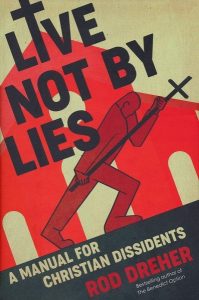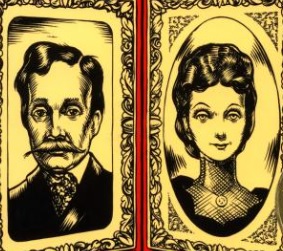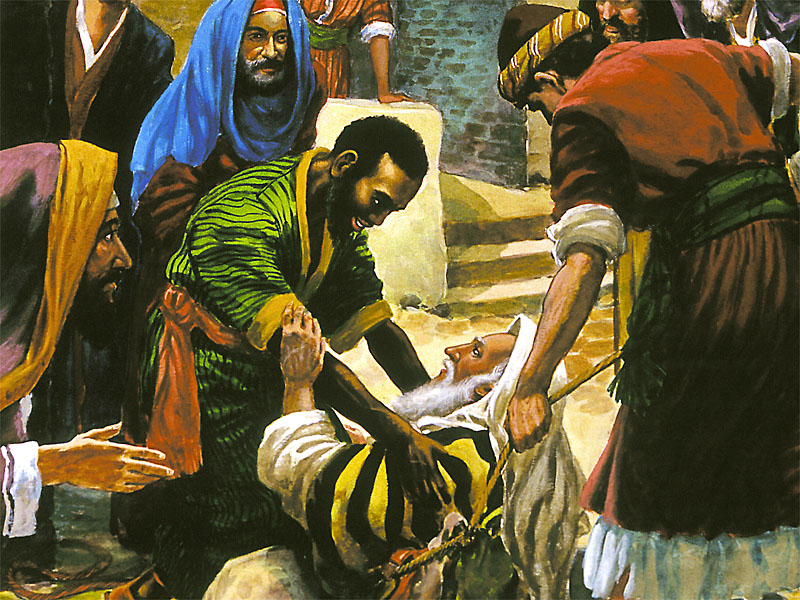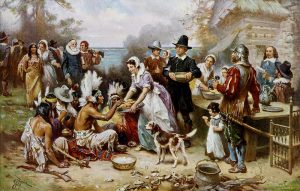Last night at church Pastor introduced a section of Scripture he’s going to be preaching on for a few weeks and I borrowed his title for this email because it really helped underline the point for me. He was talking about Acts 16 where Paul and Silas have been beaten and thrown in prison for preaching the Gospel. He was asking what the response should be when everything is going wrong, those times when Christianity doesn’t seem so easy. This verse really stood out to me:
“And at MIDNIGHT Paul and Silas PRAYED, and SANG PRAISES UNTO GOD: and the prisoners heard them.” (v. 25)
What is midnight? Well, beyond the obvious meaning of 12 o’clock at night that it is referring to here, if we want to evaluate when our response should be like theirs, we could consider it to mean darkness, depression, grief, troubles, or being overcome by fears or doubts.
Their response was two-fold. First they prayed. Prayer is crying out to God the Father. They could do nothing to change their situation. They could do nothing to heal themselves. So they cried out to the One with power and He delivered them mightily.
And they sang. When the last thing in the world that the flesh would feel like doing is singing, they sang anyway. Not just any song — but praise to God in the midst of a persecution they couldn’t in their own minds understand. They were trying to help people by sharing the Gospel of Christ. They hadn’t done anything wrong. They didn’t deserve what was happening to them. But rather than allowing Satan to get at them, they turned their focus off themselves and onto God, and when everything in them must have wanted to weep and groan, they sang instead.
And look at the rest of the verse! God wasn’t the only one that heard them. It says “and the prisoners HEARD them.” Paul and Silas had been preaching openly in the city for days, and we know that most of the multitude didn’t care about the message, because they had them beaten and thrown in prison. But here, the prisoners get a front row seat at what God does in the darkness. The normal response to a beating is not to pray and sing. They are seeing and hearing a supernatural thing. And when everyone’s chains are loosed, these men do not get up and run! Why not? The passage doesn’t expressly say, but could it be that their lives have been changed by the testimony of two Christians bearing up under heavy trial? Could it be that they have seen a miracle and they want to know more?
The testimony of Paul and Silas in the daylight did not reach as many people as they would have hoped, as a matter of fact most of the people were hardened against their message. But the testimony of Paul and Silas at midnight was of such effect that it caused prisoners who had been freed to sit still as though they were bound! Not just some of them — ALL of them.
What would our testimony be if we remembered to cry out to God in the hard times? If we sang to Him in the hard times? Might it have the same effect on those around us as the prayers and praises of Paul and Silas?
The next time we are under attack, what if our response were this (fill your own name in the example sentences):
“And IN DARKNESS, __________ PRAYED and SANG PRAISES UNTO GOD….”
“And IN DEPRESSION, ___________ PRAYED and SANG PRAISES UNTO GOD….”
“And IN TROUBLES, GRIEFS, DOUBTS, and FEARS, _________ PRAYED and SANG PRAISES UNTO GOD….”
Then perhaps the ending would be:
“…and her FAMILY, her FRIENDS, her BROTHERS and SISTERS IN THE LORD, and all her TOWNSPEOPLE heard her.”
May God help it to be so.
Love,
![]()
Copyright © 2014












